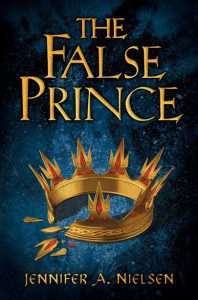
As the new year begins, whether you’re dabbling in writing, considering a career as a writer, selling your first book or just curious about the nuances and economics of traditional publishing, you might wonder if children’s authors can make a living. The truth – some do and many don’t. In today’s guest post, award-winning, best-selling author of THE FALSE PRINCE, Jennifer Nielsen offers a wealth of information on the dollars and cents of the industry and her advice on your best shot at success.
So please welcome my agency-mate, Jennifer Nielsen! Take it away, Jenn.
This post was prompted by a specific question from an aspiring author wondering whether it was realistic to dream of one day making novel writing her full time career. This is how I answered:
One thing to consider with this question is how the industry works. There are nearly unlimited options available to writers today, who may write novels, magazine articles, online content, screenplays, etc. For those seeking to write books, there are still a number of options ranging from self-publishing a few copies for family and friends or putting up your own ebook on Amazon, to working with a small publishing house, to working with one of the major houses in New York (and several options in between). My answer will assume that you go with traditional publishing, because all rules change with self-publishing.
A. Part of the book deal is negotiating terms for an advance. Your advance could be anywhere from zero up to a five or six figure dollar amount. That number is factored by the size of the publisher, their policies on advances, and by their expectations for how well your book will sell.
B. The advance is usually divided into thirds: on signing the contract, delivering the final manuscript, and on publication.
C. Publication lead times can be as long as two years. Which spreads out that advance over a good length of time.
D. After publication, you have to earn out your advance before you begin earning royalties. Ideally, you would do that within a year. Statistically speaking, a great number of books don’t earn out. Publishers earn their money from the books that do.
E. Royalties are usually paid twice a year. If you have an agent, they take their cut right off the top (which likely causes you to bristle, but I LOVE my agent. Among other benefits of having an agent, she has definitely gotten me better than that through her negotiating), and then you take the rest.
F. Unless your book is a breakout success (and that does happen, such as for TWILIGHT), the vast majority of career authors see their popularity slowly build over time. So if your first book doesn’t have earnings that allow you to go full-time, don’t be discouraged. This is normal and will only get better. Most book sales happen two ways. First is via word of mouth, and that grows over months and sometimes years. Second is your growing reputation as readers who liked your first book begin looking for your next one, and then your next.
All that sounds rather impossible and discouraging, I know. I’ve been there too. But consider these things as well:
A. Once you get your first contract (or even earlier), start writing your next book. Then you can sell it and broaden your career and income. If you want to do this as a career, then never rest on a single sale. Always keep your eye on the next book.
B. With larger houses, you may see foreign sales, audio books, and sometimes even a movie option. All of these can bring in additional money.
C. As your name gets out there, other writing opportunities may also open up to you. Have a “yes” attitude and they will come.
D. There are things you can do to boost sales, or earn additional income, such as with school visits, conference appearances, Skype visits, etc. This is challenging if you’re managing a full time day job as well, but find ways to do that where possible, and it will help to spread word about you and your books.
E. If you continue to put out books, eventually you *could* have enough, between advances, royalties, and extra stuff, to call it a career. Nearly always though, this is a gradual process. Be patient.
So…what to do is you want a full time career.
Writing isn’t a one-size-fits-all career where there’s only one option, one definition of success, or one way to reach your goals. However, things that will make it easier for you to get to a full time career include:
A. Find your niche – figure out who you are as a writer. And there are endless options for what kind of writer you could be. Once you know this answer, look at others in that same niche who are successful and make them your model. For all kinds of writers, there are people enjoying full time careers.
B. Write the best book you possibly can. We’re all trying to do that, right? Not all books are intended to be big commercial hits, but every year there are books that hit the bestseller lists that were never intended to be big commercial hits. The reason why they hit the list is the writing is stellar. Your book doesn’t have to be epic, it doesn’t have to be the next HARRY POTTER or HUNGER GAMES, but it does have to have solid writing, characters your readers love, sincere emotional content, and themes that the readers remember. This step seriously is the very most important in determining whether writing becomes your career. If the publisher is passionate about the book, they will market it more enthusiastically, which translates to greater exposure and sales, bloggers will write about it, indie bookstores will stock it and hand sell it. And word of mouth will spread.
C. That said, respect the fact that so much in any writer’s career depends on luck. Books can rise or fall depending on larger market trends, factors in the economy, a happenstance mention of your book by a really big name, an influential person on an awards committee who plucks your book from obscurity, etc. There are brilliant books that never get discovered and average books that skyrocket. However, none of that is in your control. For that matter, once you have a final manuscript with your editor, most of what happens next is not in your control. Which only reinforces how important point B above is.
D. Get an agent. This can be a brutal process in dealing with the inevitable rejections, but writing is often a brutal business so you may as well use the agent search time to thicken your skin and toughen you up. Because like any roller coaster ride, there is a down for every up and all writers will face both. If your first manuscript isn’t accepted, write another one and write it better. This part took me years. However, once you have an agent, they will be able to open the doors for you to get into the bigger houses that you can’t walk through on your own (that’s just the industry). There are some writers who earn full time salaries by being self-published or with small houses, but your odds improve dramatically at the bigger houses. To be clear, I’m not saying that any one option is better than another. Only that if you want to have a full time career, this is the route most likely to get you there.
E. Keep writing and putting out books. The best books you can write. In whatever genre you write, find books in that same genre that are selling well and figure out what they are doing well. Then you find a way to do it better.
F. And then be patient (that horrid word again, I know). Even for the really big writers, it almost always takes time. A lot of times when we see a bestselling author, it looks so easy, or as if they were just handed that success, or as if it came quickly. That is rarely true.
G. Finally, remember that nothing is ever guaranteed in this business (part of why it’s brutal). Things can and do go differently than planned all the time. Your acquiring editor leaves and the one who replaces them isn’t a cheerleader for your book. A book with a similar theme comes out two months ahead and gets all the buzz while yours ends up looking like a copycat. You get a dumb cover. Your publisher had a bad year and so they’re cutting marketing on all but their few, top selling titles. Or you have a brilliant book and everything’s perfect, but for some reason, it just doesn’t get much attention. Again, you can’t control any of this, so don’t stress it. All you can do it go back to the blank page and keep on writing.
Bottom line is, write because you have to, because it’s in your heart and blood and soul. Write with passion and so obsessively that you’ll give up lunch breaks, sleep, and that latest episode of Honey Boo-Boo. And if it one day ends up that you can quit your day job and call writing your full time job, better still. That said, I do make a full time career of my writing. It took several years, and there’s no guarantee for my future, but I’m very grateful to be here. It is possible for you to get there too.
Jennifer Nielsen
THE UNDERWORLD CHRONICLES
Elliot and the Goblin War
Elliot and the Pixie Plot
Elliot and the Last Underworld War
THE FALSE PRINCE (Now Available!)
A NYT Notable Book of 2012
A Publisher’s Weekly Best Books of 2012
THE RUNAWAY KING (Scholastic, 3/1/13)
Long Live the Prince. Soon Die the King.
Thanks so much for this thoughtful post, Jennifer, and Happy New Year. We’re looking so forward to the release of THE RUNAWAY KING in March!
Now, I’m putting it back to my readers. What are your goals for your writing career in 2013?



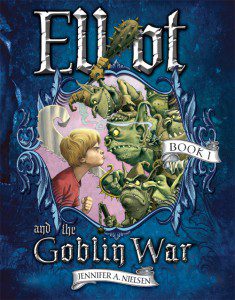
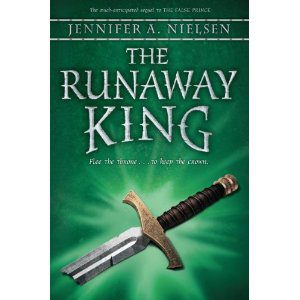
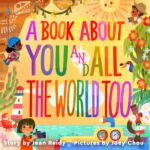
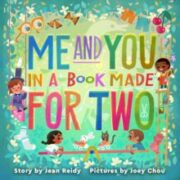
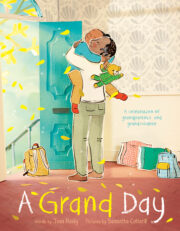
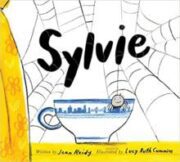
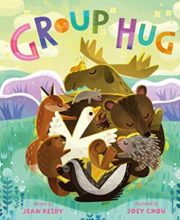
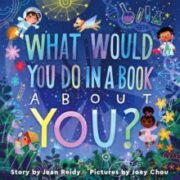
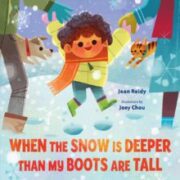
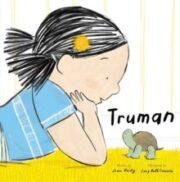

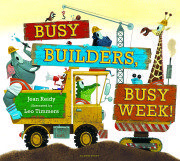
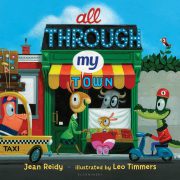
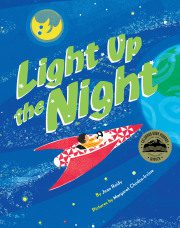
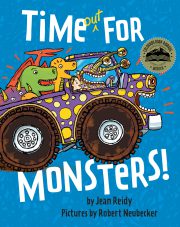
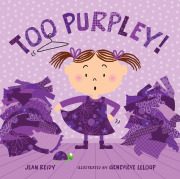
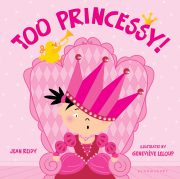
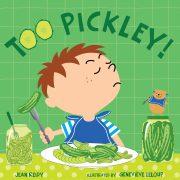
This was a nice 'spring board' read to start of a New Year of writing. Thank you Jennifer. Thank you Julie.<br />Ronda Eden SCBWI member.
Thanks for this great post Jennifer–and for including it Jean! Very inspiring and informative. As for writing goals, hhhmmmm, the biog one would be this: to finish a project I began three years ago and that really, really, really wants me to make a few final revisions and let it go…
I thought it was a nice spring board too, Ronda. Dive in!<br />Jean
Oooh Luke – a 3-year-old project! Sounds like 2013 is the perfect year to polish that baby and get it out the door.<br />Jean
Best blog post on the subject, period.<br />Please thank brilliant Jennifer Nielson (for her books also) and you, Jean, for hosting this post.
I agree, Mirka. Jennifer's post is brilliant.